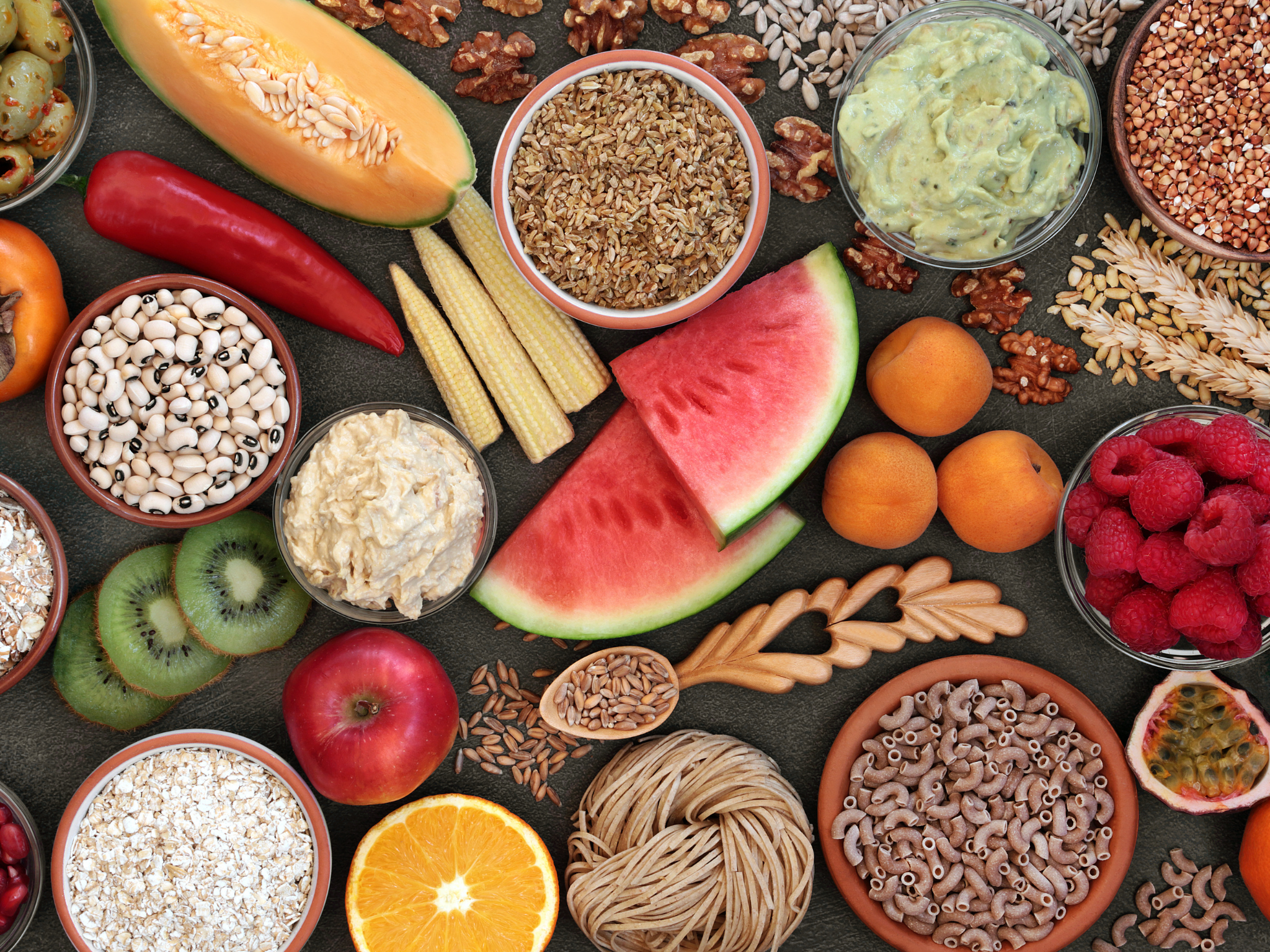Plant-Based, High-Fibre Diet Could Halt Incurable Blood Cancer Progression
4 Mins Read
A plant-based dietary invention rich in fibre may slow the spread of multiple myeloma, a rare, incurable blood cancer, in at-risk individuals.
In yet another scientific nod to the health benefits of eating plants, a first-of-a-kind analysis demonstrates the potential of a high-fibre vegan diet to halt the progression of a currently incurable blood cancer in people at risk.
Researchers at the Memorial Sloan Kettering Cancer Center (MSK) have reported results from a clinical trial featuring 20 people with a precancerous blood disorder and an elevated body mass index (BMI) at risk for developing multiple myeloma, a rare blood cancer that affects the bone marrow.
The participants of the Nutrivention study received 12 weeks of high-fibre plant-based meals and 24 weeks of coaching, and exhibited positive results in the disease progression trajectory.
“This study showcases the power of nutrition – specifically a high-fibre plant-based diet – and unlocks a better understanding of how it can lead to improvements in the microbiome and metabolism to build a stronger immune system,” said Urvi Sha, a myeloma specialist at MSK who led the study.
Plant-based, fibre-rich diet delays progression

The second most common type of blood cancer, multiple myeloma affects seven in every 100,000 people, and arises from precursor conditions called monoclonal gammopathy of undetermined significance (or MGUS) and smouldering myeloma (which is symptomless). People with these conditions have a protein called the M protein in their blood, putting them at risk of developing multiple myeloma.
Recent research has also shown a greater risk of multiple myeloma in people with poor diet quality and a low intake of plant-based food. Individuals with these conditions as well as a high BMI have been found to be twice as likely to progress to multiple myeloma as those with these conditions and a normal BMI.
Experts have been aiming to discover interventions that can prevent these conditions from progressing to cancer, and the MSK study found dietary change to be a major point of difference.
The trial encouraged participants to eat as much as they wanted, so long as the food came from whole-plant sources like fruits, vegetables, nuts, seeds, legumes, and whole grains.
The researchers found that consumption of unprocessed plant-based food was at 20% at the start of the trial, but jumped to 92% at the end of the 12 weeks. And even after a year, this adherence was high at 60%, suggesting that the changes made were sustained beyond the period of intervention.
People lost 8% of their body weight on average after 12 weeks, while there was a sustained BMI reduction of 7% after a year. There was also a significant improvement in quality of life, insulin resistance, gut microbiome health, and inflammation.
For two of the participants whose disease was progressing prior to the study, the intervention stabilised the trajectory, suggesting that a high-fibre, whole-food vegan diet may have delayed progression. Additionally, none of the participants had progressed to multiple myeloma one year after enrolment.
“These findings further support how we as physicians can empower patients, especially those with precancerous conditions, with knowledge on reducing their cancer risk through dietary changes,” said Shah.
Fibre in focus amid GLP-1 rise
“We think that a high-fibre plant-based diet can help with weight management, insulin resistance, microbiome composition, immune changes, enhanced anti-tumour immunity, and potentially also slow progression for patients,” Shah said in an interview with the Video Journal of Hematology and Hematological Oncology.
Following the positive results of the study, the myeloma expert is now enrolling for a larger trial with 150 participants and multiple centres, entitled Nutivention-3.
The study outline explains that the gut microbiome produces butyrate, an important substance that works against cancer and inflammation. A plant-based diet may raise butyrate levels in the body, while omega-3 fatty acid and curcumin supplements can have a positive impact on gut wellness too.
A trove of research has shown that plant-based diets can reduce the risk of developing multiple types of cancer, while processed meats have been classed as carcinogens by the WHO (and red meat has been named a possible carcinogen).
The MSK study comes just as gut health becomes more and more prominent in consumers’ eating choices. Its rise has been aided by documentaries like Netflix’s Hack Your Health, personalised nutrition apps such as Zoe, and the mainstreaming of GLP-1 agonist drugs – which have been used by 30 million Americans.
The latter medications replicate incretin, a natural hormone found in our bodies that boosts the GLP-1 hormone to regulate blood sugar, fulfil the appetite, and manage weight. Incretin is naturally regulated in our bodies by fibre, and with 62% of Americans more receptive to dietary change than injectable weight-loss drugs, the food industry has been scrambling to cater to the demand for high-fibre and GLP-1-supportive offerings.
Nestlé, Conagra, Kroger and Daily Harvest are all getting in on the act, while fibre-focused startups like Supergut, Olipop and Uplift Food stand to benefit too. And despite previously downplaying the impact of weight-loss drugs on their bottom lines, Coca-Cola and PepsiCo are reportedly planning prebiotic launches for 2025.
Meanwhile, a 3,000-person survey last year found that after protein, fibre is the nutrient Americans were most interested in consuming, and over nine in 10 were getting it from food products (instead of beverages or supplements). Could whole-plant foods be the solution?



